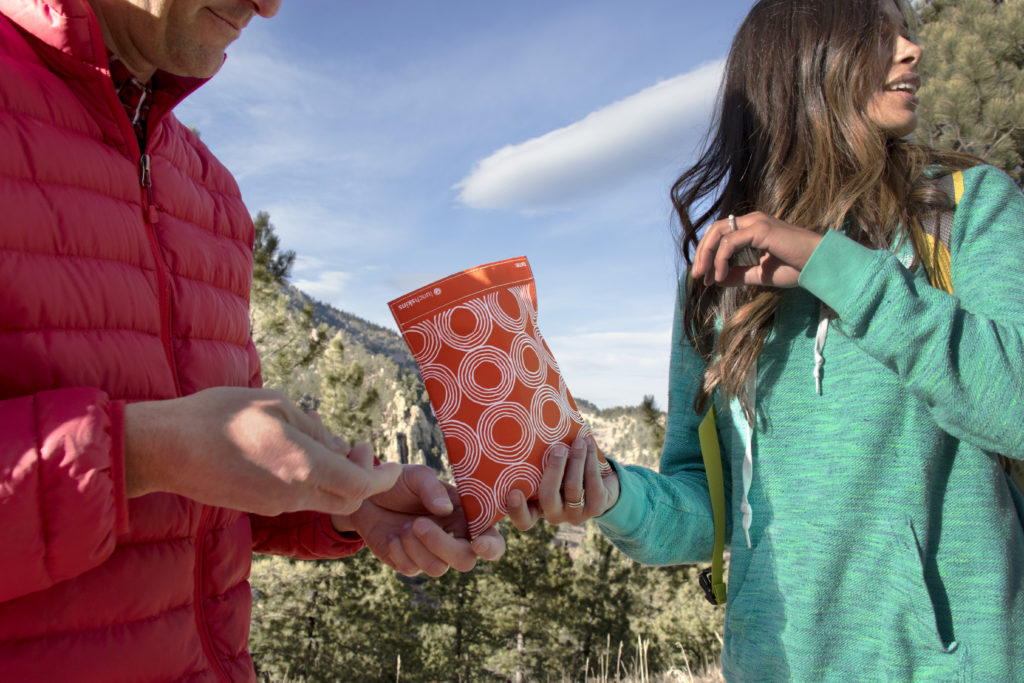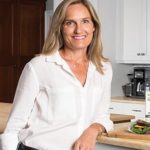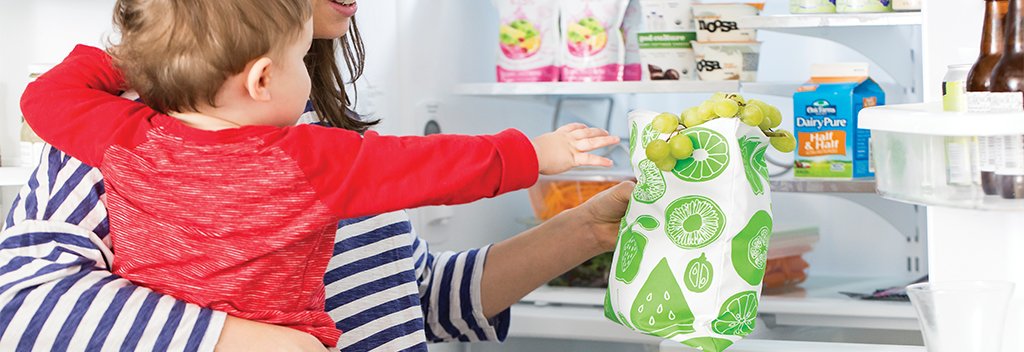 Written for EO by Kirsten Quigley, the founder and CEO of LunchSkins, a company that manufactures dishwasher-safe reusable bags, and new recyclable and sealable paper bags for food on-the-go. Troubled by the ongoing reports of plastic waste ruining our environment, Kirsten transformed her passion into a business. She shares the twists and turns along her journey so far, how she reinvented her business, and why she’s feeling particularly positive about her future today.
Written for EO by Kirsten Quigley, the founder and CEO of LunchSkins, a company that manufactures dishwasher-safe reusable bags, and new recyclable and sealable paper bags for food on-the-go. Troubled by the ongoing reports of plastic waste ruining our environment, Kirsten transformed her passion into a business. She shares the twists and turns along her journey so far, how she reinvented her business, and why she’s feeling particularly positive about her future today.
Entrepreneurship is a contact sport. I’ve weathered plenty of ups and downs, lost key customers, survived production disasters, endured the rising cost of goods, and watched the market flood with competition—and that was just in my first six years! But recently, I’m feeling particularly strong and optimistic because I think we’re finally on a sustainable growth path with a winning set of products … and it feels so good.
Let’s rewind to just a few years ago: I had watched my consumer product company grow from a home-based startup to a multimillion-dollar brand in just three years.
I went from being a proactive mom who saw an environmental problem and wanted a better solution, to leading an organization that designed and provided a better, smarter sustainable replacement to plastic bags. Our product was gaining steam and partnering with big companies including Target, GAP and Pottery Barn Kids. We were featured in O, The Oprah Magazine.
Around this time, an entrepreneur friend warned me about the notorious “bell curve” common in many startup businesses. I paid no attention to his well-intentioned advice. How could that happen when things were going so well? I mean, when Oprah knows about your product, you’ve clearly made it, right? Every indicator was headed straight up―that is, until it wasn’t, and the bottom started to fall out.
During our first six years, we’d become too comfortable and too reliant on one long-time customer that controlled nearly 30 percent of our revenue. Adding to that, we demanded too much of our single product line. Our biggest customer reviewed our lackluster sales, conducted internal vendor consolidation, and cut our product from their shelves.
It rocked the foundation of our business. I was devastated. How would we continue without that customer? We relied on their huge purchase orders to drive down production costs and depended on their revenue to fund much of our day-to-day operations. I was looking at a slow death spiral, heading to the bottom of that dreaded bell curve I hadn’t believed in.
Times of vulnerability often provide the most clarity. I quieted the noise in my head and listened to my customers. They’d been telling me what I already knew: I had to innovate.
What did I do? I picked up the ball/bat/racket―choose your contact sport, I’m a mom with four competitive athletes in my home―and went back into battle.
Times of vulnerability often provide the most clarity. I quieted the noise in my head and listened to my customers. They’d been telling me what I already knew: I had to innovate. Make something more convenient, affordable and accessible―but make it sustainable, too.
People like to feel good. They don’t want guilt. They want easy ways to make positive choices for the planet. My directive was to make it affordable, make it functional (and beautiful), and make it easy to find. We had to position our product on the same shelf where people are used to grabbing those planet-suffocating, single-use plastic bags from leading brands in order to reach consumers with our better, sustainable alternative.
Defining the idea was the easy part. Building and delivering that product in the reality of a crowded marketplace was a complex business problem requiring a ton of time, money, people and motivation.
… as an entrepreneur, didn’t I already risk everything to get into this space to help consumers make smart choices that benefit the planet? I did. So, I couldn’t―and wouldn’t―back down now.
There were doubts. Everybody thought it was too risky, too complex to shift the business to a new distribution channel, too difficult to connect with a completely new audience of buyers, too much of a production burden on our small team. So many challenges.
But as an entrepreneur, didn’t I already risk everything to get into this space to help consumers make smart choices that benefit the planet? I did. So, I couldn’t―and wouldn’t―back down now.
After much thought, research and sampling, we nailed it: 100% recyclable, compostable and sealable paper sandwich bags in a 50-count box. The modern, greener non-plastic cousin to the leading brand that fills our oceans and landfills with garbage.
From the early prototypes to our successful Kickstarter launch and full container shipments delivered every month in spring 2018, feedback has been positive, and sales are strong and growing. If you can believe it, we are burning the midnight oil to ensure production keeps up with demand!
With the introduction of this new product line, we’ve forecast a 55% increase in annual revenue over last year. Our big win? We recently launched nationwide with a major national big-box grocery chain, and we’re on track to launch in a global, high-end healthy foods retailer soon! Both companies recognize the need for new, better alternatives to single-use plastic bags.
Excited? Yes. Nervous? Yes! I want our new product to fly off the shelves and do its part to help end the plastic pollution problem our world faces on land and sea.
It’s impossible to erase the painful memories of years past, but failure is a motivating teacher. This time it feels different.
I have been humbled as an entrepreneur. I have grown as a leader. I am resilient, having known both success and failure and come back from near-certain business death. I have learned from my team and my network, and I am grateful to have been given another chance.
Like I said, being an entrepreneur is a contact sport—but this is our comeback story!
 Kirsten Quigley has been a member of EO Washington, DC, since 2015. Meet other EO members making a positive impact on the environment through our #EOImpact initiative.
Kirsten Quigley has been a member of EO Washington, DC, since 2015. Meet other EO members making a positive impact on the environment through our #EOImpact initiative.
Categories: Entrepreneurial Journey Inspirational Make a Mark members STARTUP WOMEN ENTREPRENEURS

